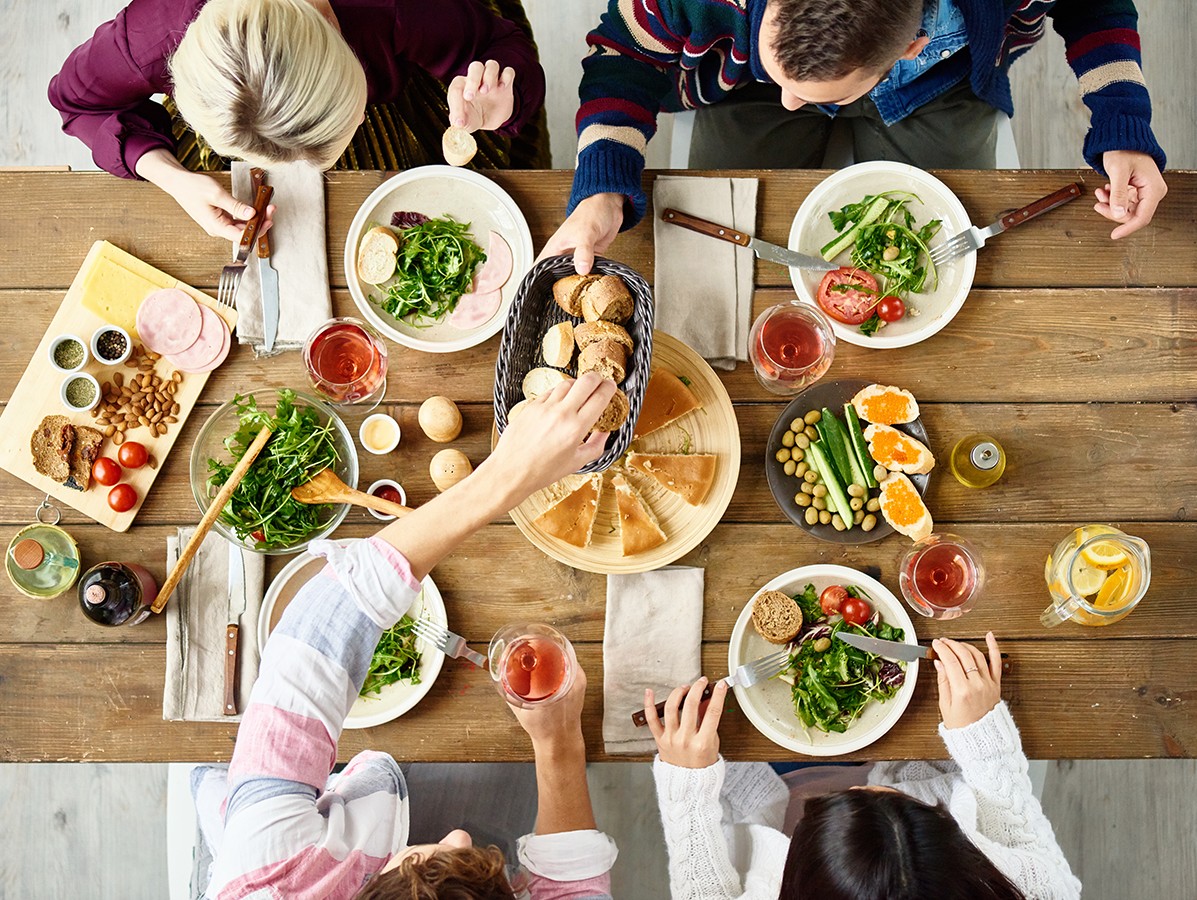
The majority of the Dutch (60%) indicate that they often eat with a great deal of dedication, according to research, among more than 1,000 respondents commissioned by the Voedingscentrum. The Dutch take their time for meals, enjoy their meals at the table to a large extent and often eat home-cooked meals. Approximately one in five people even say they spend more time eating a meal than they did five years ago.
Astrid Postma-Smeets, Expert on Nutrition and Health at the Nutrition Centre: "Many things are going very well. It's a good thing that people want to take their time for their food and do so. Eating carefully makes you feel better when you've eaten enough. The chance that you eat more than you actually need is then smaller."
The research showed that there are differences in time and attention paid to eating. For example, the evening meal is treated more consciously than other eating moments. There were also differences between age categories and singles and people with a partner or a family.
The evening meal is home-cooked on average 5.5 times a week. Ready-made meals and take-away meals are eaten on average once a week. Dutch people who often pick up their food or eat something ready to eat, indicate that they would rather eat a home-cooked meal more often.
The group of people over 55 years of age is more likely to eat according to the advice of the Nutrition Centre. This means that they eat more often without distractions, they take more time for a meal and they cook more often themselves than younger age groups. The composition of the family also makes a big difference. People who live alone eat more often in front of the TV and cook less often themselves than people with a family. They are also less often satisfied with the attention they pay to breakfast and dinner.
Source: © Voedingscentrum